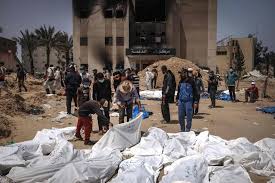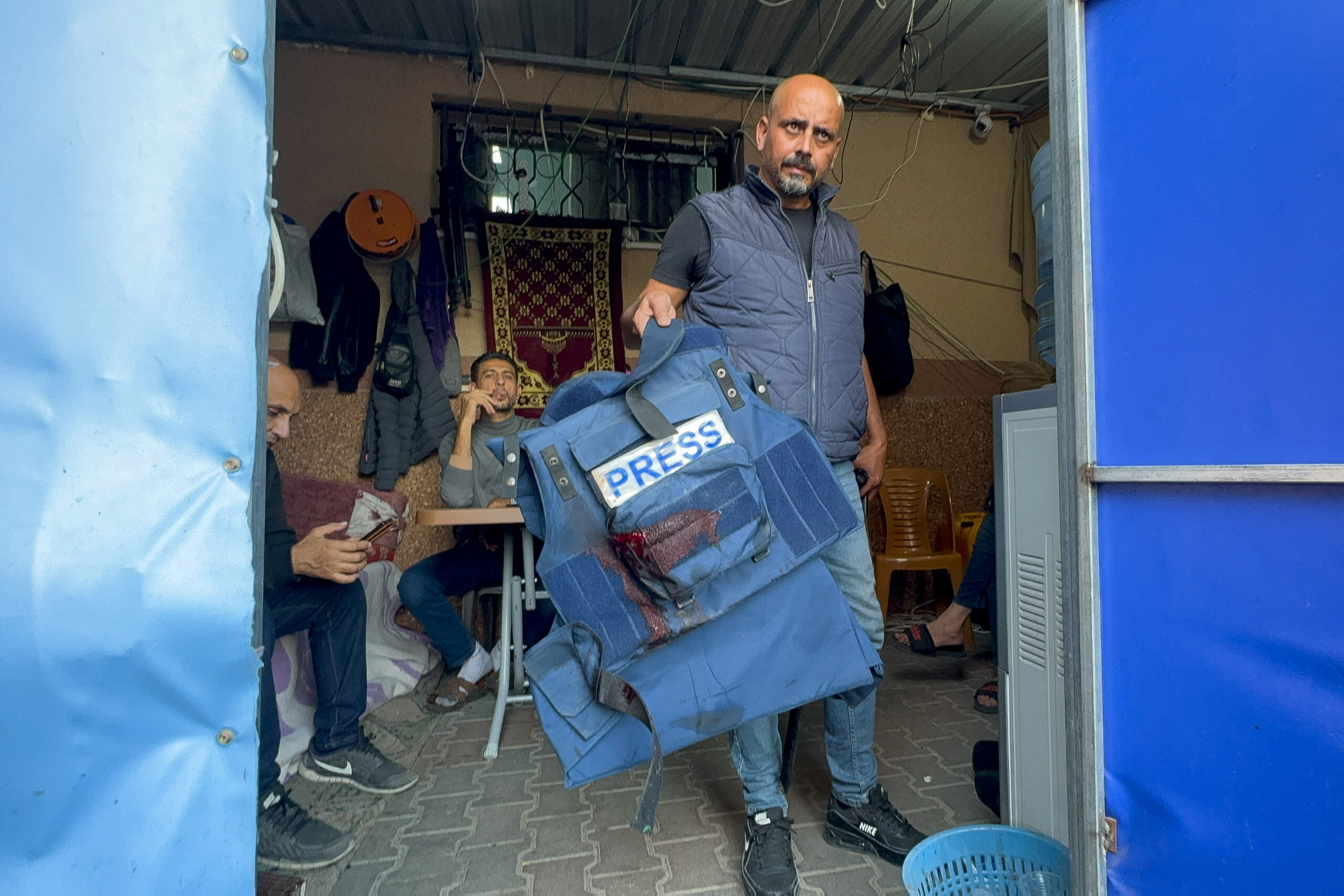Mass graves containing 392 corpses, including those of women, children, and the elderly, were discovered in two hospitals in the Gaza Strip, according to officials in the enclave. The remains bore indications of torture and execution.
Thursday marked the sixth consecutive day that Palestinian Civil Defence officials unearthed remains in southern Gaza. They disclosed harrowing new information regarding the mass graves surrounding the Nasser and al-Shifa hospitals.
Ten of the bodies were discovered with bound hands, and others still had medical devices attached, suggesting that they were possibly entombed alive, according to Mohammed Mughier, a member of the civil defense.
Mughier stated, “We require forensic examination of approximately twenty bodies of individuals whom we believe were buried alive.”
Nasser Hospital is situated in southern Khan Younis, where the director of the civil defense department, Yamen Abu Sulaiman, stated that three distinct mass graves were discovered at the facility: one behind the mortuary, one in front of the mortuary, and one near the dialysis building.
Relatives have identified only 65 of the 392 bodies that have been recovered as a result of decomposition, torture, mutilation, or other complications, he said, adding that the remains were “stacked together” and displayed signs of field executions.
Thursday in southern Rafah, Abu Sulaiman demanded that the international community “impose pressure to immediately cease this aggression against our people” and grant access to humanitarian organizations and international media to Gaza to “examine these crimes.” 
“Why do we have children in mass graves?” asked Mughier, who presented photographic and video evidence of the remains of children. The evidence further demonstrates that Israeli soldiers committed “crimes against humanity.”
Volker Turk, the chief human rights officer of the United Nations, demanded that “transparent, effective, and independent investigations” be conducted into the fatalities.
This week, Turk stated, “Hospitals are entitled to extremely special protection under international humanitarian law, and it is a war crime to intentionally kill civilians, detainees, or others who are hors de combat.”
“We require answers.” “We desire a transparent and exhaustive investigation into this matter,” National Security Advisor of the United States Jake Sullivan told reporters.
Major Nadav Shoshani, a spokesman for the Israeli army, asserted that the graves at Nasser Hospital were “dug by Gazans a few months ago.” Additionally, the Israeli military has verified unearthing remains from graves, ostensibly in an attempt to locate captives still being held in the enclave.
Sullivan’s failure to demand an “independent” investigation suggests that the United States is content with Israel conducting the inquiry.
“This is where the United States’ call for an investigation into the mass graves differs significantly from that of other world leaders and the United Nations High Commissioner [for human rights],” she explained.
Zhou-Castro stated that accountability continues to elude him even more.
“In regard to condemnation, it is true that there is an increase in instances of such behavior at present in the United States.” About conduct, solely actions are undertaken in support of Israel.
Wednesday marked the enactment by US President Joe Biden of a $94 billion foreign funding measure, which will provide Israel with an additional $17 billion in aid. This is despite mounting international pressure to limit US support for the Israeli military, which has been responsible for the deaths of over 34,000 Palestinians in Gaza.
“This is an unprecedented level of criminality; I thought the Israelis were too intelligent to intervene,” said a senior political analyst at Al Jazeera, Marwan Bishara.
“The atrocity and tragedy of the scenes, as well as the mentality that motivated them – the Israelis’ actions against the hospital and the refugee camp – are unlike anything we have ever witnessed before, and that will remain with us for some time,” he continued.





